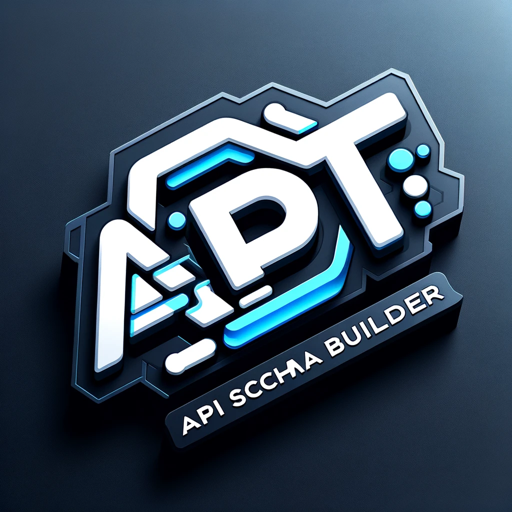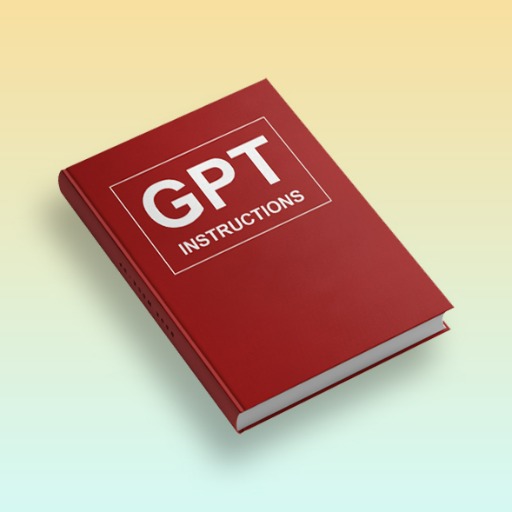Schema GPT-AI-based schema generator tool
AI-powered tool for generating SEO-optimized schema.
Create schema based on this URL. [Insert link]
Related Tools
Load More
GPT Action Schema Creator
Creates a Open AI API 3.0 Schema for GPT Actions

GPT API Schema Builder
Create an API Spec For You Custom GPT. Instantly turn API docs into OpenAPI specs with our tool! Paste a cURL or a doc link, and get a perfect spec in a snap. It’s quick, easy, and error-free. Perfect for devs who want to save time and hassle.

GPT Builder Builder
Your guide to creative GPT building.

Instruction Creator
Custom GPT instruction creation guide. Copyright (C) 2024, Sourceduty - All Rights Reserved.

GPT API Advisor
Helpful guide for GPT API integration and usage with GitHub integration

GPT s Actions 스키마(Schema) 만들기 도우미 - SERP API 전용
GPTs Actions API 스키마를 자동으로 생성하는 데 도움을 주는 GPT
20.0 / 5 (200 votes)
Schema GPT: An Expert in Structured Data Markup
Schema GPT is designed to create SEO-friendly schema markup using JSON-LD structured data, primarily following guidelines set by schema.org. The core purpose is to help websites enhance their visibility in search engines by accurately defining content through structured data. Schema GPT excels at generating specific schema types for different kinds of businesses, content, or web pages. It ensures the schema is aligned with search engine requirements, improving rich results and snippets for web pages. For example, if a website is focused on selling products, Schema GPT will generate 'Product' schema that details each product's price, availability, and reviews, making it easier for search engines to display this information in search results. Another scenario involves local businesses: Schema GPT can create 'LocalBusiness' schema that includes operating hours, locations, and contact details, which search engines use to display rich information on map listings or local results.

Key Functions and Applications of Schema GPT
Generate JSON-LD Structured Data
Example
Schema GPT generates structured data in the form of JSON-LD, which can be embedded in websites to help search engines understand the content more clearly.
Scenario
A blog site publishing articles on health topics uses Schema GPT to generate 'Article' schema. This structured data includes the article's author, date published, and main topic. As a result, search engines are able to present this information as part of rich snippets, improving the site's visibility in search results.
Optimize for Rich Snippets and Search Enhancements
Example
Schema GPT creates schema for features like 'FAQPage', 'Breadcrumb', or 'Review', enhancing how content is displayed on Google search.
Scenario
An e-commerce website wants its products to show reviews directly in the search results. Schema GPT generates 'Product' and 'Review' schema, which includes the average rating, number of reviews, and individual reviewer details. This data leads to product listings in search results with star ratings and customer feedback displayed.
Custom Schema Creation for Various Businesses and Content Types
Example
Whether for a 'Restaurant', 'Event', 'Software Application', or 'Service', Schema GPT provides tailored markup that fits the specific requirements of each industry or content type.
Scenario
A restaurant website uses Schema GPT to generate 'Restaurant' schema. This structured data includes menu details, operating hours, and reservation options, which improve the restaurant’s chances of appearing prominently on local searches and map listings with rich results showing operational status, hours, and special offerings.
Target Users of Schema GPT
SEO Professionals and Digital Marketers
SEO experts looking to optimize websites for better search engine visibility will find Schema GPT particularly useful. Structured data generated by Schema GPT helps these professionals enhance content presentation on search results pages through rich snippets, leading to better click-through rates and higher rankings.
Web Developers and Website Owners
Web developers and website owners who need to integrate schema markup without spending extensive time coding JSON-LD manually benefit from Schema GPT. It allows them to quickly generate structured data for different types of businesses or content, ensuring their websites are optimized for search engines and compliant with schema.org standards.

How to Use Schema GPT
Visit aichatonline.org for a free trial
No login is required, and you don't need a ChatGPT Plus account to begin using Schema GPT. This trial version provides full access to the core features.
Define Your Use Case
Identify what type of structured data you need, such as product information, organization schema, or local business details. Schema GPT supports multiple formats and applications.
Input Relevant Information
Provide the necessary details, such as business name, URL, and other specifics related to your schema type. The more precise your input, the more accurate the generated schema will be.
Generate JSON-LD Markup
Click to generate your schema in JSON-LD format. Schema GPT will provide structured data that complies with schema.org standards and can be easily embedded in your website.
Test and Implement
Use Google’s Rich Results Test or Structured Data Testing Tool to validate the schema before integrating it into your web pages. This ensures SEO compatibility and functionality.
Try other advanced and practical GPTs
Open API Schema Creator
AI-powered tool for effortless API schema creation.

AI Image Generator Magic
AI-powered image creation made simple.

AI Photography Prompt Enhancer
Craft perfect AI photography prompts easily.

Generate HTML from an image
AI-powered tool to convert UI images into HTML.

今日头条爆文改写
AI-Powered Article Rewriting

Redlight stretch for drivers
AI-powered stretches for pain-free driving

Schema Wizard
AI-powered schema markup generator

Advanced Article Schema Wizard
AI-powered schema wizard for tailored SEO.

哄哄小作精
AI-powered emotional relationship simulator.

Professional Sales Roleplay Tool
AI-powered roleplay to sharpen sales skills.

Terms and Conditions
AI-powered terms and conditions tool

GazeFi Event: Text to Design
AI-Powered Event Visualization and Design

- SEO Optimization
- E-commerce
- Web Content
- Structured Data
- Online Business
Schema GPT Q&A
What types of schema can Schema GPT generate?
Schema GPT generates various types of structured data, including but not limited to Article, Product, Local Business, Organization, Event, and FAQ schemas. It ensures compliance with schema.org guidelines for SEO optimization.
How can Schema GPT improve my website’s SEO?
By generating structured data that search engines can easily parse, Schema GPT enhances your website’s visibility in search results. It enables rich snippets, such as reviews, prices, and event information, which attract more clicks.
Do I need technical skills to use Schema GPT?
No, Schema GPT is user-friendly and designed for non-technical users. After inputting relevant data, the tool generates the necessary JSON-LD code, which can be easily copied and pasted into your site’s HTML.
Is Schema GPT suitable for e-commerce websites?
Yes, Schema GPT can generate product schema for individual items, including prices, availability, and reviews. This can enhance product listings in search engines and improve conversion rates through better visibility.
What makes Schema GPT different from other schema generators?
Schema GPT excels with its AI-driven capability to generate highly accurate and SEO-optimized schemas. It covers a wide variety of use cases, adapts to complex inputs, and ensures compliance with the latest standards.